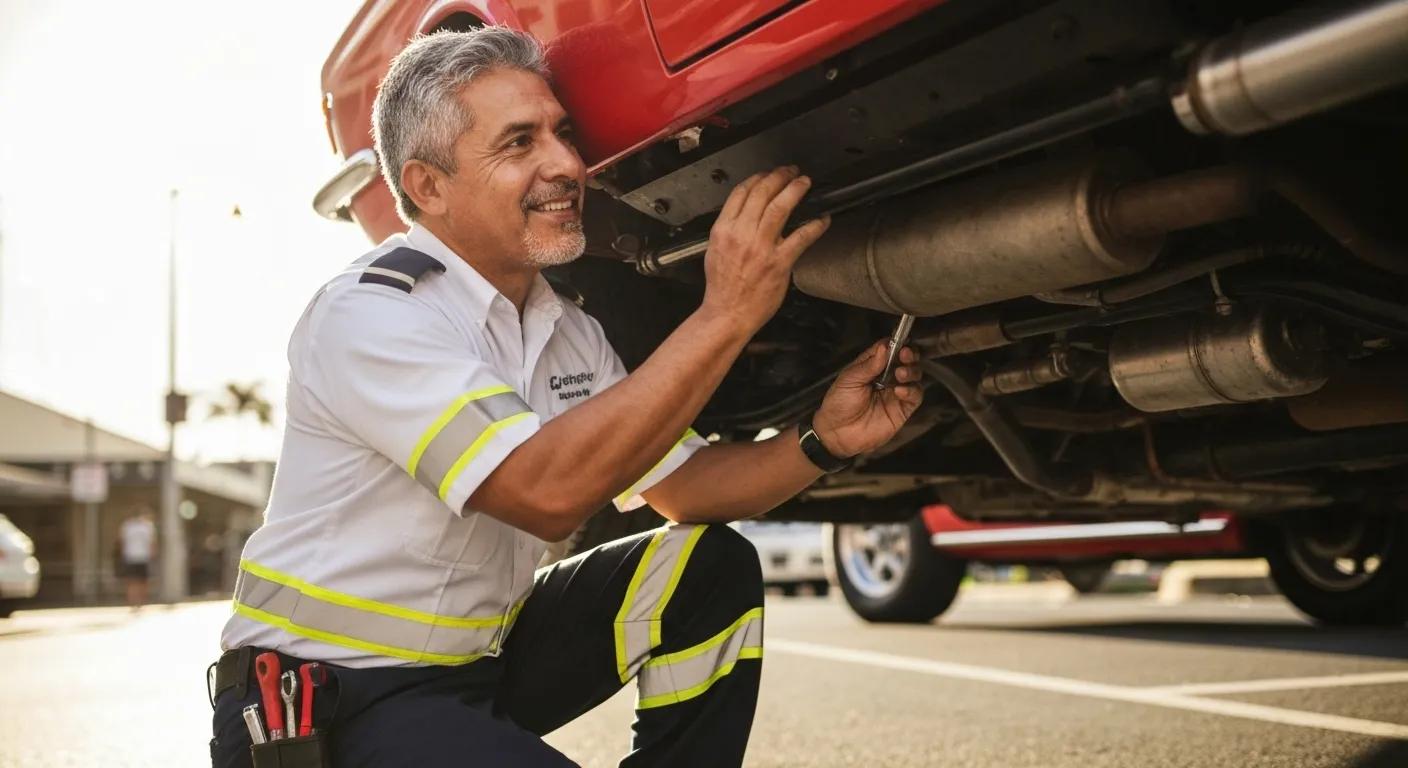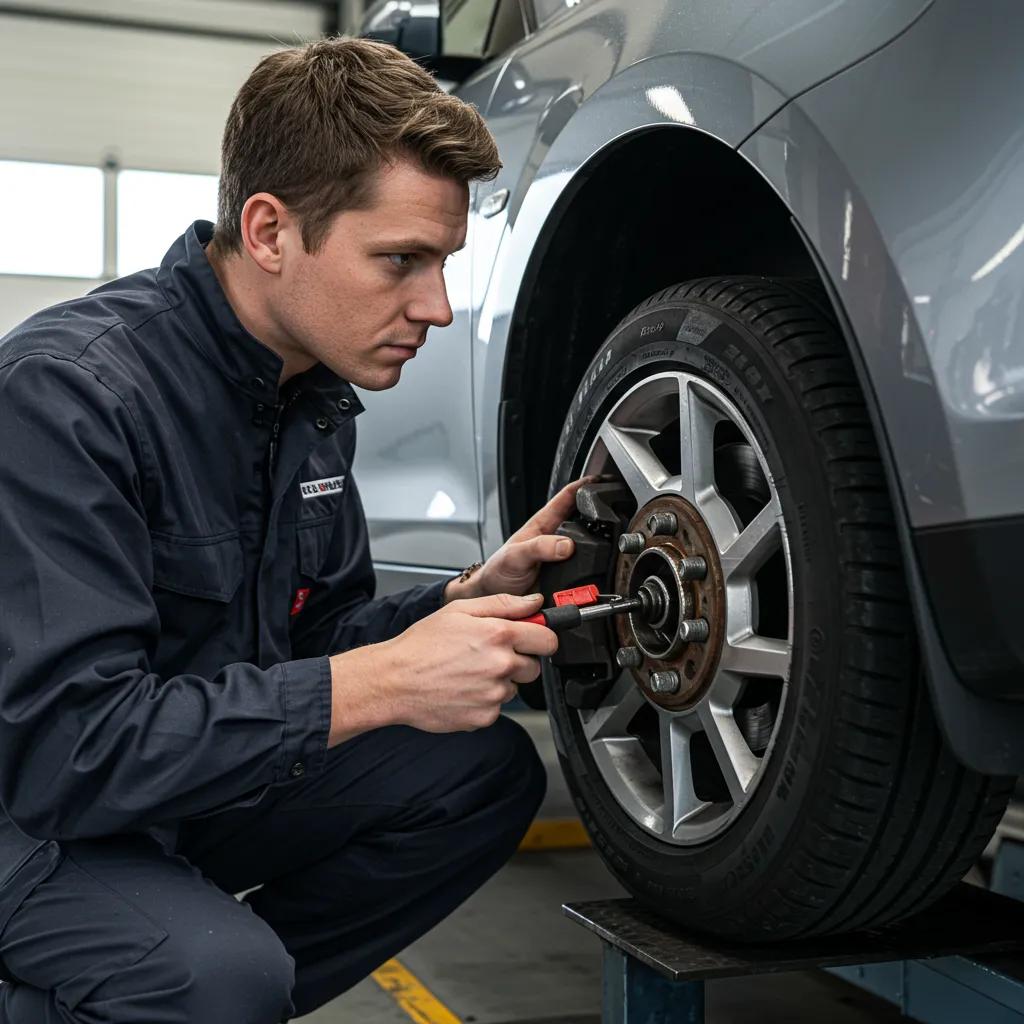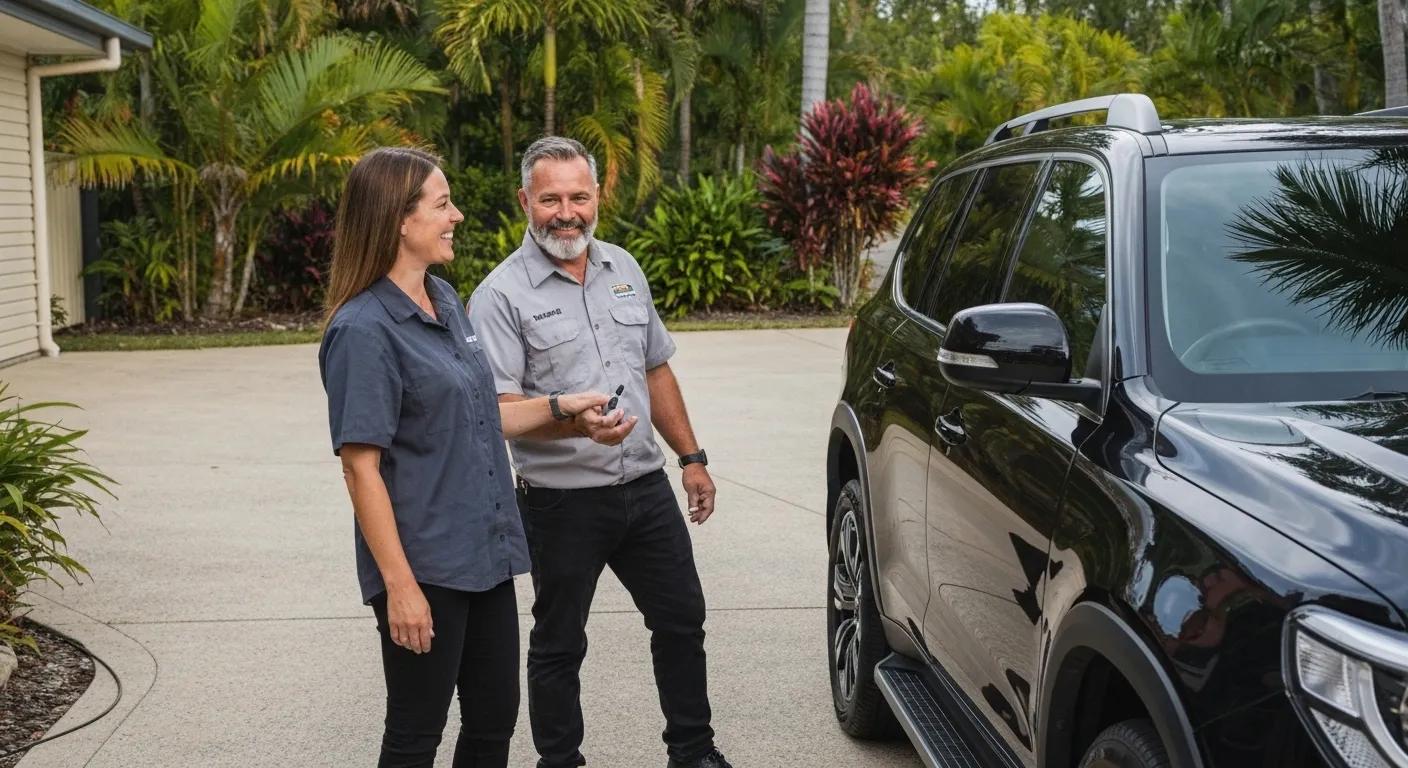
Understanding Queensland's Vehicle Inspection Requirements
Queensland vehicle owners often ask whether a Safety Certificate and a Roadworthy Certificate are distinct documents or simply two names for the same thing. Understanding this distinction is crucial when selling, transferring or re-registering a car, motorcycle, trailer or ride-share vehicle. This guide explains the purpose, legal requirements and validity of a Queensland Safety Certificate, clarifies why “Roadworthy Certificate” is interchangeable for light vehicles, compares their key attributes, and shows how Roadworthy Gold Coast’s mobile inspection service delivers compliant certificates at your location. Read on to learn when you need a certificate, what our inspectors check and how easy it is to book on the Gold Coast.
What is a Queensland Safety Certificate and Why is it Required?
A Queensland Safety Certificate is an official document demonstrating that a light vehicle meets minimum safety standards set by the Department of Transport and Main Roads. It is required whenever you sell, transfer or re-register a registered vehicle in Queensland.
Queensland Safety Certificate Requirements
In Queensland, a Safety Certificate, also known as a Roadworthy Certificate, is required when selling, transferring, or re-registering a vehicle. This certificate confirms that a vehicle meets minimum safety standards set by the Department of Transport and Main Roads [4, 6, 10].
Department of Transport and Main Roads, Safety certificates | Transport and motoring – Queensland Government (2021-11-26)
Issued by an approved examiner following a thorough inspection, the certificate protects new owners by ensuring critical components function correctly. Vehicle owners can rely on a Safety Certificate to confirm legal compliance, reduce transfer delays and support road safety on Queensland roads. Next, we’ll detail exactly what inspectors examine during this process.
What does a Safety Certificate Inspection Cover?

Before listing a Safety Certificate, inspectors verify essential systems to confirm safe operation:
- Brakes and hydraulic components are free of leaks and within wear limits.
- Steering and suspension assemblies operate smoothly without excessive play.
- Tyres meet tread-depth standards and show even wear.
- Lighting, indicators and reflectors function correctly.
- Windscreen, wipers and mirrors are intact for clear vision.
These checks ensure a vehicle’s safety-critical parts comply with regulations. Understanding each inspection point helps owners prepare and avoid common failures.
Safety Certificate Inspection Scope
Safety Certificate inspections in Queensland cover essential safety aspects, including brakes, tyres, steering, suspension, lights, and the vehicle’s body structure [3, 11]. These checks ensure the vehicle meets the minimum safety standards required for road use.
RateCity, Your guide to car registration in Queensland (2024-07-24)
How Long is a Safety Certificate Valid in Queensland?
A Safety Certificate remains valid for 2 months or 2,000 kilometres from the date of issue, whichever comes first. The certificate displays the issue date and expiry criteria either as a sticker or in digital format. This short validity period encourages timely sales or transfers and keeps safety standards up to date. Knowing the timeframe prevents inadvertent expiry before registration or sale.
Safety Certificate Validity
A Safety Certificate in Queensland is valid for two months or 2,000 kilometres, whichever comes first, from the date of issue [7, 10]. This timeframe is applicable for private sales and transfers, ensuring the certificate’s relevance during the sale or transfer process.
Department of Transport and Main Roads, Safety certificates | Transport and motoring – Queensland Government (2021-11-26)
When Do You Need a Safety Certificate in Queensland?
You must obtain a Safety Certificate when:
- Selling or gifting a registered vehicle to a new owner.
- Transferring registration following a change of ownership.
- Re-registering a vehicle that was previously unregistered.
Failing to present a valid certificate during these processes can result in refused registration or financial penalties. For commercial operators—such as ride-share drivers—annual Certificates of Inspection also apply. Next, we’ll clarify how the term “Roadworthy Certificate” fits into Queensland practise.
How Does the Term ‘Roadworthy Certificate’ Relate to Safety Certificates in Queensland?
Although many states use “Roadworthy Certificate” formally, in Queensland the term is colloquial for the same Safety Certificate issued to light vehicles. Inspectors, sellers and buyers therefore treat the documents interchangeably without impacting legal or technical requirements.
Why Are Safety and Roadworthy Certificates Considered the Same for Light Vehicles in QLD?
In Queensland’s Transport regulations, a single document fulfils both roles: confirming roadworthiness and meeting safety compliance. Approved Inspection Stations issue one certificate under the banner of “Safety Certificate,” while vehicle owners and industry professionals often call it a “Roadworthy Certificate” out of habit. This unified approach simplifies processes and avoids dual paperwork.
How Does Queensland’s Terminology Differ from Other Australian States?
| State | Official Term | Issuing Authority |
|---|---|---|
| Queensland | Safety Certificate | Department of Transport & Main Roads |
| New South Wales | Safety Check / Roadworthy Certificate | RMS / Service NSW |
| Victoria | Certificate of Roadworthiness | VicRoads |
| Western Australia | Roadworthy Certificate | Department of Transport WA |
What Are the Key Differences and Similarities Between Safety and Roadworthy Certificates?
While both certificates confirm minimum safety compliance, they share purpose, validity and covered vehicle types. The table below summarises their relationship in Queensland.
| Document Name | Primary Purpose | Validity | Applicable Vehicles |
|---|---|---|---|
| Safety Certificate | Legal sale, transfer, re-registration | 2 months or 2,000 km | Light vehicles (cars, motorcycles, trailers) |
| Roadworthy Certificate* | Common term for safety compliance | 2 months or 2,000 km | Same as Safety Certificate |
*In QLD, this is simply the colloquial name for a Safety Certificate.
This comparison shows there are no functional differences for light vehicles in Queensland. Common misconceptions include assuming additional tests are required for “roadworthiness” or that heavy vehicles need the same certificate—both are incorrect. Next, we’ll outline exactly who needs one on the Gold Coast.
Who Needs a Safety or Roadworthy Certificate on the Gold Coast?
Any private seller, transferee or re-registrant on the Gold Coast requires a current Safety Certificate. Key scenarios include:
What Are the Requirements for Selling a Registered Vehicle?
Private sellers must present a Safety Certificate at the time of sale or transfer of registration. Without this document, new owners cannot complete registration, which delays payment and handover.
How Does Ownership Transfer Affect Certificate Needs?
When gifting a vehicle to family or transferring between spouses, a valid Safety Certificate ensures the registration office accepts the ownership change without extra inspection fees.
What Are the Rules for Re-Registering an Unregistered Vehicle?
Vehicles off the road for more than three months require a fresh Safety Certificate before regaining registration. This confirms roadworthy status after periods of inactivity.
What Certificates Do Uber and Ride-Share Vehicles Require?
Commercial and ride-share vehicles need annual Certificates of Inspection (COI), equivalent in scope to a Safety Certificate but tailored for passenger-carrying vehicles. This ensures compliance with Transport regulations for hire and drive services.
How Does the Mobile Vehicle Inspection Process Work with Roadworthy Gold Coast?

Roadworthy Gold Coast brings licenced inspectors to your home, workplace or depot, saving time and avoiding workshop visits. Here’s how it unfolds.
What Are the Steps to Book and Complete a Mobile Inspection?
- Request a quote via phone or website.
- Schedule a convenient date and location on the Gold Coast.
- Inspector arrives with all testing equipment.
- Complete inspection and address any minor faults on the spot.
- Receive a printed or digital Safety Certificate once compliance is confirmed.
What Are the Benefits of Choosing a Mobile Roadworthy Service?
- Enhanced convenience by inspecting at your location.
- Faster turnaround with immediate fault repairs available.
- Licensed inspectors ensure full Transport compliance.
- Clear pricing for cars, motorcycles, trailers and Uber vehicles.
Choosing Roadworthy Gold Coast’s mobile service guarantees reliable certification without disrupting your daily schedule.
As vehicle safety remains a legal and practical priority, understanding that a Safety Certificate and a Roadworthy Certificate are one and the same for light vehicles in Queensland eliminates confusion and prevents registration delays. Roadworthy Gold Coast’s expert mobile inspections deliver compliant certificates directly to you, saving time and ensuring peace of mind on the road. Ready to secure your Queensland Safety Certificate? Book your mobile inspection today and drive with confidence.


